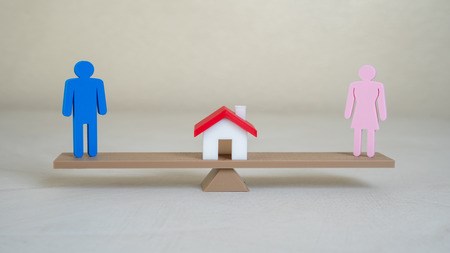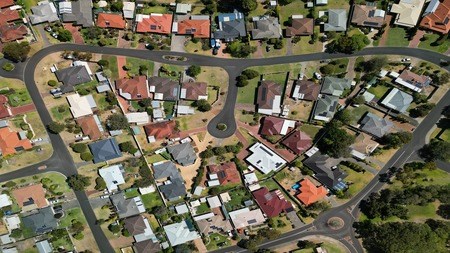After almost 15 years of rising property prices in the vast majority of global property markets – and by as much as 300% in some markets - the last half of the decade was a rollercoaster ride for the global property industry. The sub-prime crisis emerged in the US in 2006, and rocked the global financial system. Shortly afterwards, the effect on the global property market became evident as property prices declined by an average of around 17% across the globe over the next two years. By 2009, the credit crunch had become an established economic reality and the global economy was in a recession, with further serious implications for the property market. However, global house prices showed signs of recovery in 2009, growing by around 10% on average. The latest survey of the Global Property Guide reveals that 17 out of 35 countries recorded increases in house prices over the year to end Q3 2010, based on inflation-adjusted house price changes. Of the 18 countries that experienced house price falls, 11 recorded slower rates of decline.“This recovery brought global house prices to levels around 9% below the peaks recorded before the downturn. It was to a large extent driven by the efforts of governments around the world to stimulate their economies through massive interest rate cuts and strong measures to assist homebuyers,” says Peter Gilmour, Chairman of RE/MAX of Southern Africa. “Of course, there are wide differences in the performances of local property markets, some of which are still below their earlier peaks, most notably the US and some European countries. In addition, property prices have, in the last few months, showed signs of decline again. This can, to some extent, be ascribed to the fact that the stimulus provided by aggressive rate cutting has been absorbed by markets, and further rate cuts have not been possible, given the low interest rate levels. The ongoing difficulty of accessing finance also continues to constrain any substantial recovery,” he explains. For example, in the UK, surveys confirm that the property market rebound in 2009 is experiencing a reversal. UK mortgage lender Nationwide confirmed that house prices fell by 0.3% in November and that the annual rate of growth fell to 0.4%, the weakest since September 2009. Nevertheless, market experts do not anticipate house price declines to accelerate in the months ahead.Recovery has also eluded the US housing market, according to the Global Property Guide’s figures. Despite a modest quarter-on-quarter increase in house prices in Q2 2010, the seasonally-adjusted purchase-only house price index was down by 4.31% over the year to Q3 2010, worse than the decline of 2.41% during the previous year.TWENTY-YEAR TIMEFRAME A MORE REALISTIC PERSPECTIVE “Despite the declines in property prices since 2006, and the latest declines following the mini-recovery in 2009-2010, a global view of property prices over a twenty-year timeframe provides a more realistic perspective of the property market downturn. Property prices sit at just under 10% of the peaks achieved after 15 years of strong growth up to 2006 and still represent a solid performance. The declines currently experienced are generally less steep than in the crunch period after 2006, and there is no doubt that the market is in better shape at the end of 2010 than it was in 2008 and 2009,” says Gilmour. The question, then, is will 2011 be the turning point for the global property market? “Given the realities of the last few years, it is unlikely that 2011 will be a ‘turning point’ in the sense that we will return to the pre-2006 scenario where the majority of global property markets produce strong house price growth. While it can be expected that, overall, the global housing market will deliver positive growth in 2011, double-digit growth rates are unlikely, except in a few exceptional cases. Instead, the slow but steady recovery evident since 2009 is likely to continue at a gradual pace and the bounce in property prices evident in 2009 and 2010, on the back of now-forgotten government interventions, will continue to slow,” he says. Of course, this cautiously optimistic expectation for 2011 could be significantly impacted by a range of factors, most notably the possibility of interest rate increases around the world. In addition, deterioration in the global economy, particularly if the double-dip recession scenario becomes a reality, will certainly negatively impact the performance of the global property market. This is particularly true in light of the ongoing debt problems experienced at all levels – from sovereign countries to individuals across developed and developing countries. “However, despite the numerous macro-economic risks that cannot be ignored, we do expect the recovery in the global property market to continue at a subdued and constant pace for some time. While 2011 may not deliver any spectacular price growth, it will bring realism and stability to the market, as property prices, rentals and yields return to more realistic, sustainable levels, setting the scene for the next upturn in the global property cycle,” he concludes.
Property Advice



